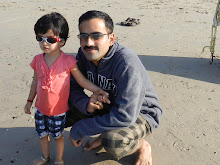5 Tips to Monitor Your Projects
Tip 1: Time Management is Critical
If you want to deliver your project on-time, then you need to have a good understanding of what your team spend their time doing. That makes sense, right?
Start by using time tracking software to record time spent. Make sure that every team member records the tasks they are working on and the time they have spent, every day of the project.
You need to then review that time and make sure that it's appropriate. Are they spending the right amount of time on the right tasks, to achieve the right outcomes?
As well as monitoring the time spent, you need to understand the time remaining. So update your project plan weekly with the revised planned finish dates. Only then can you calculate the actual vs. planned progress of the project.
Tip 2: Track Percent Complete
One of the easiest ways to monitor the project is to keep an eye on the overall “percent complete”. You need to identify the actual % complete of every task and then compare it to the planned % complete (i.e. what the % complete should be as of today).
If overall, your project should be 50% complete and yet you are only 43% complete, then you have a lot of work to do, to get back on track.
Tip 3: Monitor Spend vs. Budget
You also need to continually monitor the current cost of the project vs. the budget set. Record:
- One-off expenses, using "Expense Forms".
- The cost of your resources by calculating the cost per hour of each person in your team, times the number of hours spent working on project tasks.
- All miscellaneous, recurring and ongoing expenses.
Summarize your project expenses every week and compare them to budget.
Tip 4: Keep one eye on tasks and the other on your team
Projects are always stressful. Your team has too much work to do and limited time in which to do it. So given that your team will be under stress for the length of the project, you need to monitor their motivation levels at all times.
Every week, hold a team meeting and while communicating the status of the project, find out where their motivation levels are at? Are they happy, fired up and ready to kick-ass? Or are they de-motivated and don't really care?
Motivation comes from having shared goals and enjoying the experience in achieving them. If your team has low morale or poor staff satisfaction then they will not meet the goals set. So keep an eye on team motivation constantly and run “up-beat” workshops to get them excited about the next phase ahead.
Tip 5: Changes are the Death of Projects.
The biggest risk of the project is that the business wants to change the goalposts, the minute they are set. Seen this before?
How could you win a game of football, if the goalposts constantly change? The trick is to record every change that is requested and monitor the effects of those changes on the project. If they are likely to impact on the timescales, budget or our objectives, then tell the customer upfront and request more time, resources or budget in which to do it.
- Uday Mahajan


